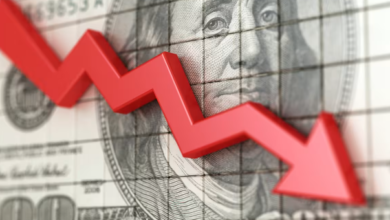How Do I Choose a Financial Adviser?


Editor’s Note: This story comes from Wealthramp.
Why do people retire unsure if they will have enough money to see them through their golden years? It could be the lack of trust in who’s advising them.
A study by Northwestern Mutual found that only a quarter of Americans say their most trusted source for financial advice is a financial adviser.
It’s become a cliche – too many baby boomers and now Gen Xers don’t have enough savings to retire, and all have stories about the challenges of do-it-yourself investing. Meanwhile, every week headlines in the news call out bad broker behaviors and further erode any sense of trust in Wall Street.
But let me ask this: What criteria have you used for finding and vetting your financial adviser? The reality is, people spend more time doing homework to hire a personal fitness coach than checking out a professional financial adviser’s background.
Here’s what you should be doing in the process of making this decision.
Making a Better Financial Adviser Match

Bad vibes from financial advisers left the Thompsons on their own and financially unprepared for a family illness. When Janice was diagnosed with a serious long-term disease, the professional couple from Atlanta recognized they would need to adjust to living with one less income stream. Why were they not prepared?
The Thompsons didn’t see themselves as experienced investors and had already given up on the idea of seeking professional advice years ago “fearing being taken advantage of after prior experiences that were not fruitful, but were very costly,” says Janice.
Nowadays, we rely on the web to lead us to everything, from finding the right apartment or the best orthodontist, to the ideal romantic partner. Young or old, we turn to the web because technology has become very good at making good matches.
Matching an investor to a qualified financial adviser involves a combination of key ingredients, including chemistry, expertise and clarity of intentions. The search starts with some basic investor education. Knowledge is power.
It’s All About the Interview

In the traditional model, the financial adviser takes control of the meeting. Clients follow along and nod as the adviser drives the questions and answers with plenty of references to seemingly sophisticated, complex investing strategies.
The client typically walks away feeling the adviser has demonstrated superior financial knowledge and understanding of the markets, and that recommendations from this adviser would be appropriate.
Today, more investors are breaking this old-school model. Thanks to technology, consumers can arm themselves with interview questions so they can control the dialogue. They have already done their homework and are more confident about choosing the financial services they want.
These investors are also more apt to ask questions about how much they will pay for those services and then cross-compare that offer against others by shopping online.
Still, even now it can be very confusing to figure out how one financial adviser differs from another in a sea of sameness and which credentials matter most.
I recommend taking a middle-ground approach to working with a financial adviser. On a scale of 1 to 5, you fit somewhere between the do-it-all-by-yourself approach and the delegate-all-decisions mode.
To determine what level of support is right for you, focus on the most important considerations such as how often you expect to communicate with your financial adviser and what kind of interaction you really want. These are critical questions to ask yourself before you talk to the adviser because they are unique to your situation.
Get It in Writing

Full transparency is a non-negotiable point in the new wealth advisory world. First, ask the financial adviser to confirm their fiduciary relationship.
Investment Performance Record

Ask the financial adviser for their investment performance record on behalf of clients. You want to see their performance in both bull and bear markets.
Unbiased Due Diligence

How did you find your financial adviser? Was he/she a friend or a referral from a friend?
Many victims of investment fraud considered their adviser a long-time friend. These so-called friends communicated primarily through monthly statements itemizing false returns and/or unregistered securities.
When you interview any adviser you’re considering, ask them to explain how they’ll act in your best interests and if they’ll provide you with a fiduciary oath in writing. If they won’t, you’ll at least have the information you need to decide whether to take a chance — or walk away.
Source link





